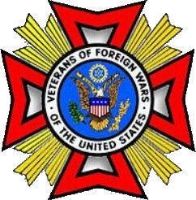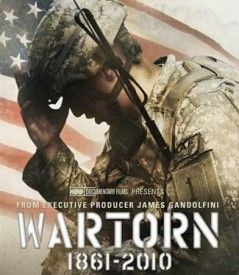This is a very powerful and true graphic. A special thanks to my friend, Tiffany, for sending this to me. I thought I would share since so many can relate to this. The stigma does need to end!
Saturday, March 15, 2014
For Those Who Tell Me PTSD Is In My Head....
Posted by Courage To Fight The Battle at 4:49 PM 0 comments
Labels: PTSD
Military Sexual Trauma (MST)
Since this is a month that is for remembering women in history, I think this subject of MST (Military Sexual Trauma) should be mentioned as well. Next month is Sexual Assault Awareness Month so this will give you time to learn a little about this epidemic within our military and veteran communities and how you can help.
Over half of women who have been involved in the recent wars have PTSD, a majority of this being from sexual trauma. This is something that both female and male veterans have been struggling with for years in the military. But even more shocking than that is the amount of MST estimated by the Department of Defense. One of five women veterans have experienced an MST (keep in mind that is ALL veterans). One of every 100 males have experienced an MST. These numbers being brought to light are a good and bad at the same time on so many levels. First, let's define what is MST...
MST is either a sexual assault or sexual harassment which includes the following:
- sexual activity where someone is involved against his or her will
- threatened into sexual activity
- unable to consent to sexual activity (intoxication, unconscious, etc.)
- physically forced into sexual activity
- unwanted touching
- groping
- threatening
- remarks about one's body or sexual activities
- unwelcome sexual advances
Veterans Affairs have zoned in to helping females with PTSD related to sexual trauma. There are no programs for females with combat related trauma. In my case, I have been involved in a PTSD group specifically for combat related trauma for almost three years....among a group of anywhere from 5 to 25 men. I have only met one other female in this group but she ultimately committed suicide a year ago. I can relate on many levels with the men in the group with them all being from the current wars and a few of them who were previously in a military hospital. I have experienced counselors in the past that assumed I was seeing them for a sexual trauma since I was a female. I was referred to group counseling when I first was seen for mental health through the VA and found out soon after it started that I was in the wrong group. It's only been within the last year along with documentation of my civilian counselor for the two years prior that has landed me with a wonderful counselor in the VA who does not look at me differently for being a female or assuming it must be sexual trauma. This is the downside of the increase of sexual trauma in females.....it prevents other forms of PTSD from being treated properly due to the stigma of the numbers. I'm sure the men go through this as well. Showing up at the VA for help and assuming it is combat related PTSD and not sexual trauma. It goes either way.
So from now on reading this post, keep in mind that the victim may be a female or a male. Victim is a legal term but by no means does it mean weakness.
Numbers:
- From July 2012 to July 2013, there were 3,553 reports of sexual assault. That means a soldier was 15 times more likely to be raped than killed in the line of duty.
- In an anonymous survey, there were 26,000 cases of unwanted sexual contact in 2012 alone....13,900 being men.
- 75% of women do not report the attack and 76% of men do not report their victimization as well.
- 85% of sexual crimes go unreported.
- 40% of crimes have a perpetrator that is a higher ranking member of the military.
- During 2012, 302 perpetrators faced criminal charges or dismissal from the military....that's less than 2.5% of all suspected sexual crimes.
- Males that have been diagnosed with PTSD due to sexual trauma are more likely to be denied than females for disability compensation through Veteran Affairs.
Looking at these numbers, it is obvious that this is a serious problem within the military and recovering as a veteran. With the recent laws in place, there have been some major strides to prevent victims from feeling as if they are powerless in these situations. Now, before we get into that, I want to go over how complex the system was before....
There have been stories of retaliation and hiding what happened to the victims over decades within the military. Some of the case studies I have read in regards to MST is brutal to say the least. Why has this been happening for years? The cultural mind frame within the military. My views originally were the "old" army. Males complaining of assault were just weak and the females were no better. I know that is brutally honest and mean, but there is a point.... this is how many assaults were viewed in the military. I may be a psychology major, but I am not an expert in regards to sexual assaults. My focus is on combat related trauma and disasters. But, with my government job, I have had to handle cases like this. Thus, I have a better understanding on sexual assault in both the victim and perpetrator's view. Now I that I have participated in those types of investigations, I wish I could slap my old self across the head for thinking so "old school" army at the time. The new way of looking at this problem and sorting through all the facts is the new rules that have been implemented and currently being trained on individuals in the military.
Let's face it, everyone gets tired of hearing the sexual assault awareness every time you turn around in the military....leaving for deployment, post deployment, Veteran Affairs healthcare orientation, etc. etc. Not to mention all the classes on the civilian sector when a military member transitions into civilians. But, it is a necessity with the growing number of cases within the military. What is being done now for MST? Well, it's better late than never....
A new program, SHARP (Sexual Harassment/Assault Response and Prevention), has been implemented under different names (SHARP, SAPR, etc.) in all branches. All these programs focus on the importance of preventing sexual harassment and assaults. This is the best way to prevent MST. There are many routes a soldier can take when reporting the incident and SHARP has made it possible for the victim to feel as comfortable as possible with no retaliation.
With this new program, stricter prosecution has been issued. Court martials, dishonorable discharges, pay cut, drop in rank, and prison time are just a few different punishments that may be enforced. Retaliation is subject to Article 15 and discharge of service. Basically SHARP doesn't play around when it comes to this stuff. The other positive in this situation is that the perpetrator must register as a sex offender on post and in the state of residence. This will help prevent any future instances even outside of the military.
The victim is required to be protected during this whole situation. In certain situation, the victim may be moved to a different unit or a different post to ensure the safety of the individual. Psychologically, this may benefit the victim to live without fear and begin the healing process through a trauma counselor. Even if the victim cannot move due to family or does not want to, there are many different avenues taken to maintain safety. The unit commander will usually work with the MPs, the victim, and the victim's advocate to enforce a plan of action in regards to the safety of the victim. This also may involve civilian law enforcement depending on if the victim lives on or off post.
As I mentioned before, the avenues available for victims of sexual assault are endless now with the SHARP program. The VA also has extensive services for those who have suffered from MST.
The VA Military Sexual Trauma Program options are endless....
- Multiple outpatient programs such as counseling, cognitive therapy, group therapy, and prolong exposure therapy.
- In-patient therapy lasting anywhere from 30 days to 7 weeks depending on the location.
- The Vet Centers are available to make appointments or even walk ins.
- In April, all VA centers host awareness and additional resources in honor of Sexual Assault Awareness Month.
Remember that the month of April is Sexual Assault Awareness Month. Check with your local VA or military installation or community on what programs will be available near you. If you or someone you know has experienced MST, that this coming month to contact the VA for further assistance in healing. The VA link to the Military Sexual Trauma Program a few lines above also list stories of male and female veterans who have experienced MST and on the road to recovery. I hope this has either enlightened or motivated. If you are afraid of speaking out, know that you are being supported. If you have experienced MST and afraid of getting treatment, don't be. Thousand of women and men have come before you ready to heal. With these awareness programs available and stricter military prosecution, hopefully this will help prevent many future occurrences among the ranks.
Posted by Courage To Fight The Battle at 3:21 PM 0 comments
Labels: Mental Health, Military, Military Sexual Trauma, PTSD, Resources, SHARP, The Invisible War, VA, Vet Centers, Veterans
Friday, March 14, 2014
Women's History Month
First, let me apologize for not updating this sooner. Appointments upon appointments have taken up my spare time. On the bright side, that means the VA is doing their job which shocks me tremendously.
March is Women's History Month. What better celebrate than briefly go over what women have done in military history. Women have played major roles in military positions for thousands of years. In the United States, women have been in the military since even before the birth of our country. Before WWI, women disguised as men to joined the front lines to fight in battle. Over a 150 have been found so far during the Civil War era. With the lack of records and mass graves frequently due to the large amount of soldiers killed during battle, it has been predicted that there were many women who were disguised during this time.
Posted by Courage To Fight The Battle at 10:50 AM 0 comments
Labels: Military History, PTSD, Resources, VA, Veterans, Women's History Month
Thursday, January 23, 2014
Substance Abuse and Veterans
Substance abuse is an ugly word among some. But, it is a reality our veterans and military service members are facing. Many of these veterans don't realize they are abusing the drug(s) just from the fact that they are struggling with PTSD and/or pain. These situations should be handled delicately and there are many programs that will assist in the recovery process. The first step is not denying the situation which is easier said than done. Just remember this...the quote for the day:
"From this day to the ending of the world, but we in it shall be remembered - We few, we happy few, we band of brothers. For he who sheds his blood today with me shall be my brother" - Henry V, William Shakespeare.
...in other words, you are not alone.
First the facts. They might help put things into perspective:
- Prescription drug abuse doubled inbetween 2002 and 2005. It tripled in 2005 to 2008.
- 27% of military service members who returned from a deployment meet the criteria of alcoholism, but it is suspected that these numbers are considerably low since this is only reported numbers.
- 30% of all suicides that were reported among active duty military were associated with alcohol from 2003 to 2009.
- More than 45% of non-fatal suicide attempts of military personnel had alcohol involved.
- The younger the soldier, the more chances of alcohol abuse is occurring. (My personal note: I believe this is due to the frontal lobe not being fully developed and more susceptible to considerable changes from trauma exposure and/or head trauma).
The VA is very cryptic of what veterans are facing when in comes to substance abuse. But here is the known facts:
- If you were injured in war, you are more susceptible to substance abuse.
- If you suffered a head injury, you are more susceptible.
- If you suffer from PTSD, you are more susceptible.
- If you are under the age of 30, you are more susceptible.
- If you are a chronic pain patient, you are more susceptible.
- Military recently back from deployment are more susceptible.
- Military previously deployed and facing another deployment are more susceptible.
Basically, it is a vicious cycle and many veterans have experienced this. The military has also stated that over 50% of soldiers returning from war are participating in binge drinking, it's probably much more than that. The reality is that this occurs within the military culture as it is....before deployment and after deployment is when it increases dramatically. My word of advice, just be safe. I can't tell you how many times I had to stick someone with an IV because they drank way too much, usually right before deployments.
What is hard is for others to understand why substance abuse occurs so much within the military and veteran community. To drown the pain, memories, etc. Everyone has a reason. These are the facts to these "uses":
- Alcohol is a depressant.
- It makes the memories worse.
- Prolonged, excessive alcohol exposure generates a painful small fiber peripheral neuropathy, the most common neurologic complication associated with alcoholism
- Withdrawals from chronic alcohol exposure will create more pain.
- Alcohol with prescription drugs increases the effects of the drug that can cause the inability to wake up, internal bleeding, and liver failure.
- When alcohol reduces the pain, it has reached an excessive amount that can induce the previous facts listed.
- Build a relationship with a local pharmacist. The VA and the military have been known to prescribe medication that are deadly mixed together. Talking to your pharmacist about medications prescribed can ease the apprehension of taking multiple medications and confirm that you are getting the adequate care you deserve.
- If the pain medication isn't work, try to contact your doctor about your concerns. The VA and military providers are sometimes hard to get to so you may want to talk to your pharmacist again, call a nurse on staff, or ask another medical professional. Worse case scenario, if the pain is unbearable, go to the VA Emergency Room. They will straighten things out until you can see your provider. DO NOT take more than prescribed!
- If you begin to build a tolerance to a medication you are taking, talk to your provider. Physical therapy, another drug, or any other service might be available to help.
- Keep track of what you are taking, when, and how much. If someone lives with you, ask them to help with this process. I know asking for help is a horrible feeling sometimes, but it is better than overdosing!
- Try to see an occupational therapist if you haven't already. Occupational therapist have many great tools, tricks, and advice on how to keep the pain a minimum. They are all about YOU and helping you live an independent life.
- Keep track of how many drinks you have. It's okay to have the occasional drink but you will be surprised how you forget how much you drink within a week. Keep track of this and reflect if this is "normal". Having a psychologists or a peer mentor reflect with you will help. The first step is overcoming denial.
For family members:
- Do not yell, get angry, start the name calling game, or frustrated at your family member. This causes abuse to happen more frequently and can be deadly. Be understanding.
- Show your support and concern. But, don't be too pushy. Do research and talk to someone who is experienced in substance abuse within veterans.
- Reflect on why your family member/friend is doing this. There are plenty of valid reasons. The key is to understand why they are doing it. That way you know what they need to get help for.
- Offer your family member/friend to have a guy's/girl's night out with others that deployed with them or other veterans. They feel comfortable talking about what they went through with others who have "been there and done that". You would be surprised how much it helps talking to other veterans and just hanging out with them.
- The biggest thing you can do for your veteran is support them. They are going to have to realize for themselves their problems and how to overcome them.
Here are the following resources to find help or more information about substance abuse of veterans:
VA Substance Abuse Programs
Wounded Warrior Project - they have many programs that are listed and phone numbers are available to contact different departments for wounded warrior project alumni, family members, or more information to join. A few different programs they offer is peer support, therapy in certain areas, and information for other resources.
Substance Abuse and Mental Heath Service Administration - Military/Veteran Programs
Other sources are listed on the side of this blog that can further assist in overcoming this situation. I will post more programs if I come across them. Comments, questions, cuss words???
Posted by Courage To Fight The Battle at 2:44 PM 0 comments
Labels: Chronic Pain, Mental Health, Prescription Medications, PTSD, Resources, Substance Abuse, VA, Veterans
Sunday, January 19, 2014
Veterans Be Aware of the Privacy Breech On EBenifits
Some of you may have noticed the "down for maintenance" again on eBenifits that has popped it's ugly head again as it does multiple times a month. This time, it is due to a privacy breech where other veterans were able to see personal information such as social security numbers, bank routing numbers, claims, medical conditions, etc of other veterans. The news article is very interesting on the details of these findings and what was done to finally shut it down. Veterans should be on alert for any possible repercussions on this breech and watch for any updates of the investigation.
Posted by Courage To Fight The Battle at 5:02 PM 0 comments
Short Clip of Civil War Soldier's PTSD
This short clip is from the documentary "Wartorn 1861 - 2010". It shows the progression of PTSD through the letters and accounts of a soldier during the Civil War.
Posted by Courage To Fight The Battle at 4:47 PM 0 comments
Labels: Military History, PTSD, Wartorn 1861-2010
Saturday, January 18, 2014
Facebook Community Page
Here is the Facebook Community Page. Feel free to like the page and participate. If you have any questions you want to ask anonymously, message me and I will post it.
Courage To Fight The Battle's Facebook Page
Posted by Courage To Fight The Battle at 9:38 PM 0 comments
Labels: Facebook



















